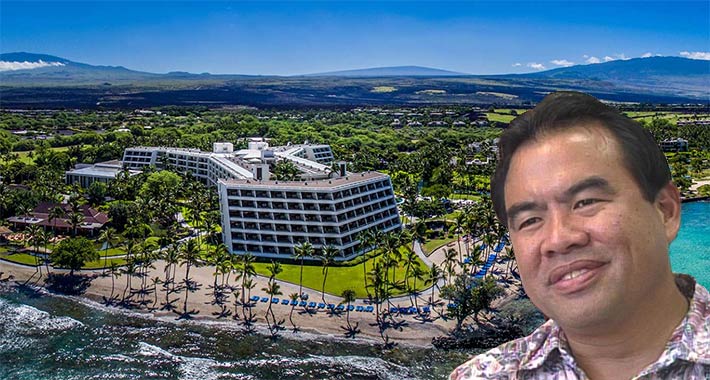
Taxpayers supported the lavish lifestyle of Sandwich Isles Communications’ owner, Albert Hee, who used $27 million in broadband funds to pay $90,000 for massages and $17,000 for his family to stay at this Hawaiian hotel for a stockholders meeting, even though Hee was the sole stockholder. Hee said those expenses didn’t come out of federal funds and wants $50+ million for slander.
The FCC on Thursday reaffirmed its earlier decision that Hawaii-based Sandwich Isles Communications (SIC) knowingly defrauded the Universal Service Fund (USF) of more than $27 million for reimbursements it was not entitled to receive.
In its order for reconsideration, the FCC said between 2002 and 2015, the USF provided nearly $250 million of funds to SIC to provide service to customers in the Hawaiian Home Land. However, the company only provided “(Redacted) lines—a small fraction of the customers it originally stated it planned to serve.”
Last April, the U.S. Department of Justice filed a lawsuit to foreclose on the assets of SIC to recover $128 million in principal and interest the company owes.
Albert Hee, 64, owner of SIC and Waimana Enterprises, Inc. (WEI) its parent company, filed a counter-complaint on Dec. 17, 2018 from the Terre Haute, Ind. minimum security satellite camp where he is serving a 46-month prison sentence after being convicted on six counts of criminal tax fraud and one count of impeding an investigation of the Internal Revenue Service.
He is scheduled to be released on Oct. 16, 2019.
The prosecution provided evidence of numerous instances in which Hee authorized the use of corporate funds for his personal expenses such as payments to his personal masseuse totaling more than $90,000 and written off as “consulting services”.
Other “business related” expenses totaled at least $119,909.19, which included $55,232.23 for family vacations to France and Switzerland, Disneyworld and Tahiti. A family vacation on the island of Hawaii was charged off as a stockholders’ meeting in the amount of $17,000, although Hee was the only shareholder of the company at that time.
Through his company, Hee purchased a $43,000 SUV and a home in Santa Clara, Calif. for $1.3 million so that his children could use the vehicle and stay in the home while attending a nearby university.
In his counter-complaint, he said the USA “continues to mischaracterize my 2015 tax conviction and misuse it to sway public and this court’s opinion. Plaintiff USA has in excess of twelve attorneys working on this proceeding which they initiated.”
“This proceeding is the culmination of ten years of Plaintiff USA’s discriminatory actions. Sandwich Isles was never a part of the business expenses for which I was convicted. Plaintiff USA’s and the individual third-party counterclaim defendant’s continued misuse is slanderous and defamatory,” Hee said.
Hee also said in his counter-complaint that he has been defamed and slandered due to false statements that the plaintiff has made, and he believes he is entitled to an amount ”to be determined at trial, but is no less than $50 million, the amount Plaintiff USA has fined me.”



















